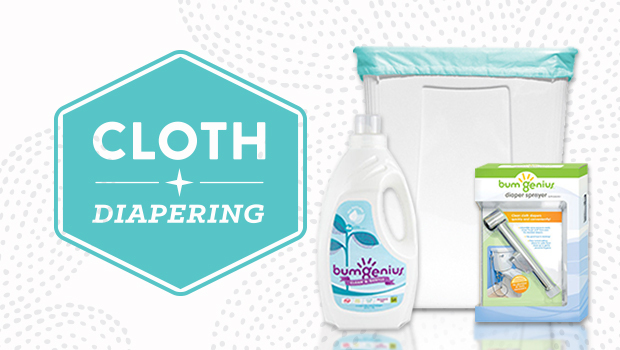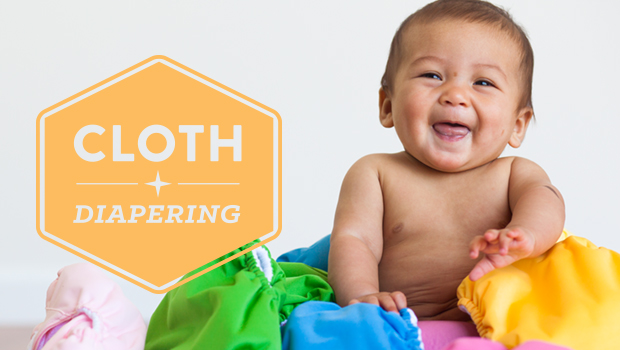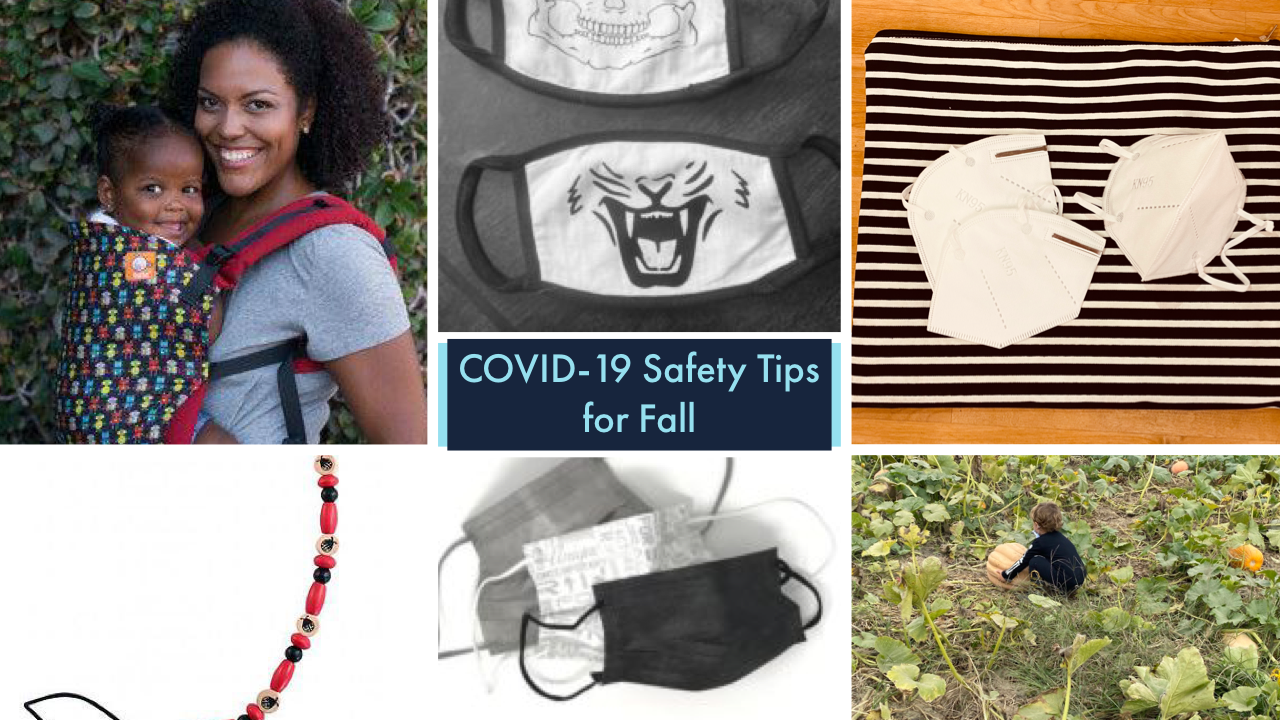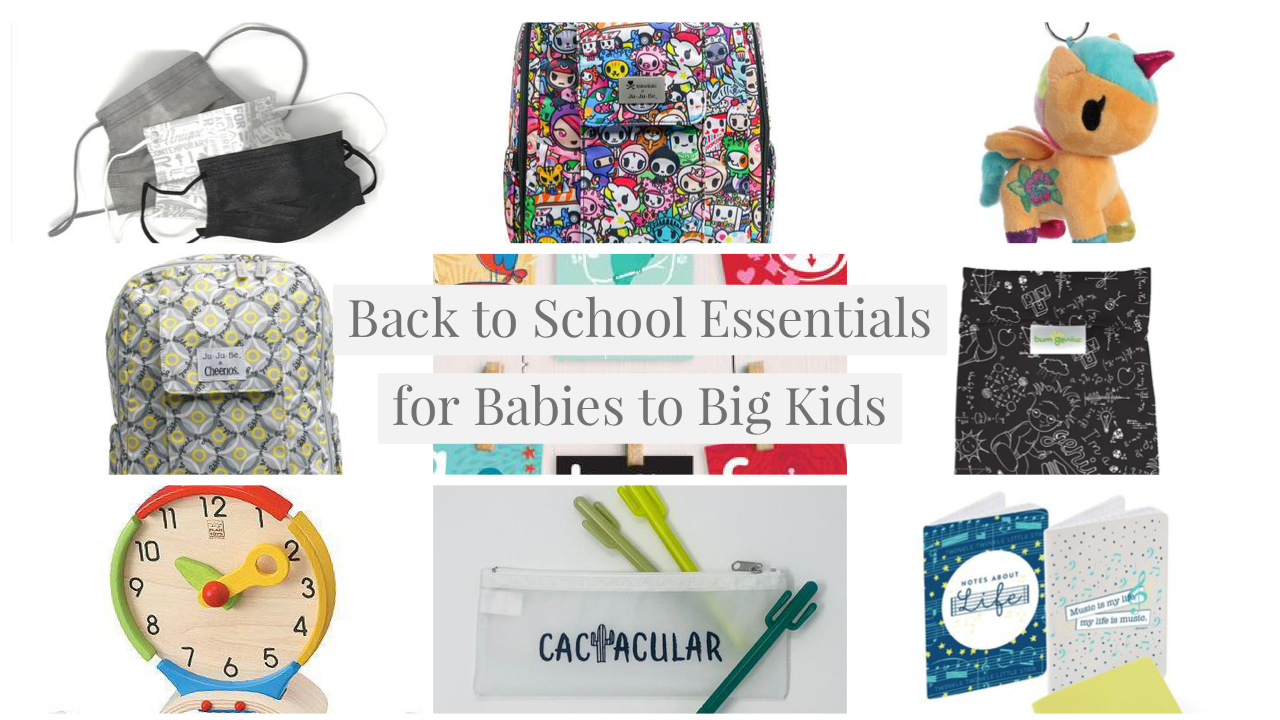
One of the biggest concerns of cloth diapering parents is that they’ll do something wrong in their wash routine, and their diapers won’t come clean. In this post, we are going to tell you what to do with poopy cloth diapers. Keep reading to learn more.
Prepping Your Cloth Diapers for Laundry Day
The Basics of Handling Dirty Cloth Diapers
Handling cloth diapers is relatively simple once you get into a routine that works for you. You’ll need a place to store your diapers in between washes. Most cloth diapering parents opt for a cloth diaper pail. A diaper pail liner will help prevent long-term smell issues in the pail, and many parents find that keeping the pail open, rather than sealing it, helps keep the smell from building up in between washes. A large wet bag with a loop for hanging over the bathroom or nursery doorknob is also a great solution. I use a diaper pail and liner in the nursery, and a wet bag in the bathroom for poopy diapers or those changed at the other end of the house. You’ll also need a great wash routine that will keep your diapers clean and smelling great. Unlike your regular laundry, cloth diapers typically can’t wait for weeks before being washed (though some moms have had great luck saving diapers that have been forgotten in a wet bag or abandoned at a friend’s house for longer than intended). In general, you want to treat them like you would any other item that’s been heavily soiled: regular washes, generally every 2-3 days; plenty of detergent in the wash; an extra prewash cycle to get out some of the particles before you start washing.
Dealing with Poop in Cloth Diapers
It’s not much of a stretch to admit that dealing with poop is one of the worst parts of cloth diapering for many parents. In general, there are just a few rules of thumb to keep in mind when dealing with poop:
- If your baby is still exclusively breastfed, their poop may be water-soluble. Try tossing your diaper in the wet bag as-is and washing it as usual. In many cases, it will come straight out! If you have trouble getting your diapers clean this way, it’s time to troubleshoot—starting with pre-rinsing your cloth diapers. Specifically, rinse away the poop when the diaper comes off your baby.
- Once baby starts solids, you’ll probably need to rinse poop away before putting the diaper in your washer. Some parents opt for a very-handy-but-not-necessary diaper sprayer, but others find this isn’t the right solution. Don’t worry! The simple “dunk and swish” pre-rinsing method (described below) will help keep your diapers clean.
- The dreaded toddler poop: as your baby grows and their digestive system changes, poop becomes much smellier. If you’re lucky, your toddler will have “ploppable poop” that only requires you to turn the diaper over the toilet and watch it drop in.
The Right Cloth Diaper Routine
There’s no one “right” routine. Some parents deal with poop as it happens, plopping it in the toilet and moving on with their day. Others, especially those with more than one in diapers or those whose children poop multiple times a day, may prefer to make a pile of poop diapers somewhere convenient, then deal with them all at once. Making it part of your routine will decrease the odds that a poop-filled diaper will end up sitting somewhere, forgotten, until it’s beyond saving.
- The Dunk and Swish Pre-Rinsing Method:
Place the diaper in the toilet and swish vigorously to remove the bulk of the poop. It’s okay if a little bit is left after you rinse the diaper. You’ll often find that you can accomplish this without allowing your hands to touch either the water or the poop in the diaper. I fold the diaper in half with the dirty part “out” and then just rinse the dirty part of the diaper. This method is especially effective when combined with a bucket near the toilet to hold the rinsed diaper. - Spraying in the Laundry Sink:
A laundry sink is a favorite of many cloth-diapering parents. Rinse off the diaper and go! - Take Them Outside:
Instead of dealing with poop in the house, take the diapers outside and aim a water house at them. - Diaper Liners:
If you recurring stains in your diapers that require several sun sessions to get out, cloth diaper liners will keep your diapers stain-free and easier to deal with.
Special Circumstances When Cloth Diapering
Having an excellent routine for dealing with your diapers at home is one thing, but prepping your diapers for wash can be more challenging when you’re out of your comfort zone. Parents often use disposables at daycare, when on the go, or when they start potty training because they don’t know how to keep the diapers clean enough! Don’t worry. You can still create a routine that will work no matter where you are.
- On the Go
When you’re out and about, you have a couple of options for dealing with poopy cloth diapers. No matter which one you choose, make sure you have a travel wet bag on hand for storing wet and soiled diapers.
You can either:- Plop the poop in the stall while you’re changing the baby. This works best with ploppable poops.
- Roll the diaper up and put the diaper in your wet bag. Take care of it using your regular routine when you get home.
- Daycare:
You may end up in a similar situation with your cloth diapers from daycare: if your provider isn’t comfortable dunking them for you—and many either can’t or won’t—you should have them simply store soiled diapers in a wet bag and make sure that you rinse them when you get home each evening.
- Overnight Diapers
Chances are that your baby produces more pee overnight than during the day. You’ve found an overnight diapering solution that will handle it. Still, you’re worried about ensuring those diapers get clean enough so you won’t end up with that dreaded increased ammonia smell. If you’re struggling to clean your overnight diapers, try rinsing them as soon as they come off your baby. This will help get urine out of the deeper layers and prevent it from sitting until wash day.
- Potty Training
When you’re potty training your little one, you’ll use fewer diapers, which means that you may end up with long stretches between washes. Early in the process, your little one might only use diapers or trainers when they’re out in public or on long car trips, overnight, and for naps. Eventually, you may progress to the point where your little one only needs a diaper when sleeping. If you want to be able to stretch longer between wash days, get in the habit of rinsing the diaper thoroughly as soon as it comes off of your little one. You’ll find that this makes waiting an extra day or two between washes more possible.
Conclusion
Figuring out the proper routine for you, whether at home or on the go, may take some time and troubleshooting. When you first realize that your baby has progressed from breastmilk poop to solid poop or that your toddler’s overnight diapers aren’t quite getting clean in the wash, it may take an extra wash cycle or two to get your diapers back on track.
Don’t worry! With very little effort, you’ll quickly develop a cloth diaper routine that will keep your diapers clean and smelling great even if they sit in the diaper pail for an extra day (or three—we’re not judging!) before you wash them.




Comments
Comments are closed here.